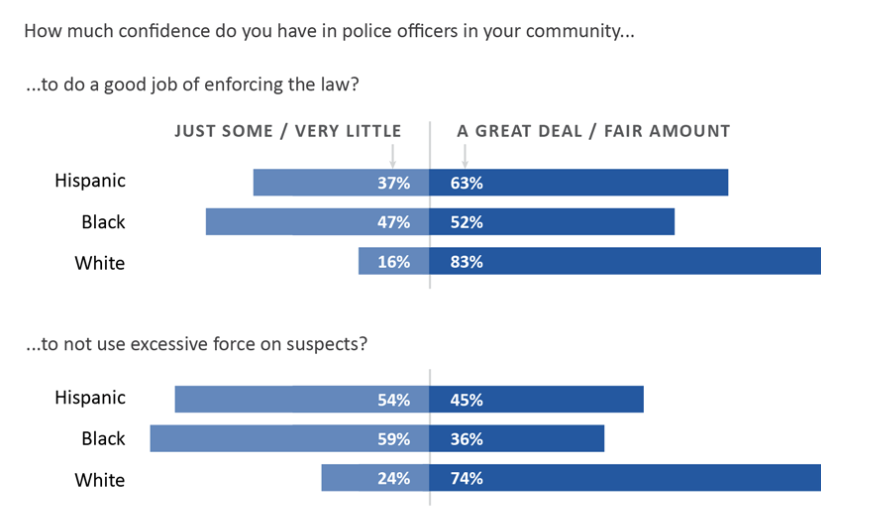This week the White House published the interim report on policing in the 21st century. It has some good parts. You can read the 100 page report HERE, but I thought you might like a few highlighted quotes and some commentary.
“Trust between law enforcement agencies and the people they protect and serve is essential in a democracy.”
“It is key to the stability of our communities, the integrity of our criminal justice system, and the safe and effective delivery of policing services.”
“People are more likely to obey the law when they believe those who are enforcing it have the right—the legitimate authority—to tell them what to do.”
“How officers define their role will set the tone for the community. As Plato wrote, ‘In a republic that honors the core of democracy—the greatest amount of power is given to those called Guardians. Only those with the most impeccable character are chosen to bear the responsibility of protecting the democracy.’”
“OVERARCHING RECOMMENDATION: The President should promote programs that take a comprehensive and inclusive look at community based initiatives that address the core issues of poverty, education, health, and safety.”
- This is a great idea. I just hope that the programs are willing to look at all causes of criminality. Often times for political reasons our federal government wants to talk about poverty and education as the only, or main, cause of criminal behavior. Interestingly, nobody is offended by this argument that essentially says that the poor who have not received formal education are criminals. In fact, the vast majority of people with limited education or economic disadvantage never commit any crimes.
- The federal government needs to be open and honest about the impact that the breakdown in the nuclear family, and the lack of real fathers and mothers, has had on criminal behavior.
“RECOMMENDATION: Law enforcement agencies should acknowledge the role of policing in past and present injustice and discrimination and how it is a hurdle to the promotion of community trust.”
- Truth and reconciliation programs have been shown to help in other parts of the world. Why not here? The reality is that when we see a “Ferguson” it is not about the single incident the media focuses on, but on a social divide and lack of trust between law enforcement and the community it serves.
“ACTION ITEM: To embrace a culture of transparency, law enforcement agencies should make all department policies available for public review and regularly post on the department’s website information about stops, summonses, arrests, reported crime, and other law enforcement data aggregated by demographics.”
- This particular action item is key and there is no reason that in 2015 we can’t do this for little cost. Posting this information will force the agencies to study the system of policing and see where there system is failing or working. It will help them identify training issues and problem areas in the police department and the community. It might be hard for the agencies to do this at first, but in the long run both they and the community will benefit.
“ACTION ITEM: In order to achieve external legitimacy, law enforcement agencies should involve the community in the process of developing and evaluating policies and procedures.”
- This is a democracy right? This should go without saying, but it is good they said it.
“RECOMMENDATION: Law enforcement agencies should strive to create a workforce that contains a broad range of diversity including race, gender, language, life experience, and cultural background to improve understanding and effectiveness in dealing with all communities.”
- This will likely be viewed as a controversial recommendation, and it clearly has pros and cons, but it is a good idea. Here’s why. Imagine you are stopped by the police and you know that every single person in that agency is in some visible way different from you. You might think, right or wrong, that you have been targeted based on that visible difference. Once you start thinking that, you loss trust in the police. If many people distrust the system it losses legitimacy. That is when “Fergusons” happen.
- Some would suggest that this recommendation is affirmative action that will result in police hired without meeting the standards. This may be true, but you need to analyze the damage caused by a lack of trust in the system and compare that against the issues with bringing in under qualified officers. If the loss of trust in the community is great there is a greater need to take steps to repair that trust.
- Additionally, the basic presumption that an “affirmative action hire” necessitates lower standards. Agencies instead should focus on proactive recruiting of qualified applicants and additional training to bring them up to the standard.
“ACTION ITEM: The U.S. Department of Justice should remove civil immigration information from the FBI’s National Crime Information Center database.”
- Although the report has many positive and productive recommendations, this “action item” is just simply stupid. Have we not learned over the last two decades that more information sharing across agencies such as the DOJ, FBI, DHS, etc. is a good thing.
- It is easy to imagine the scenario where a terror attack occurs that the FBI could have stopped but their database was separated from the DOJ so they did not identify the would be terrorist.
- Over all the repot is a good product, but like anything coming out of D.C. it needs close scrutiny.

